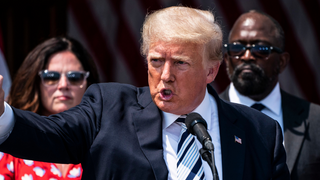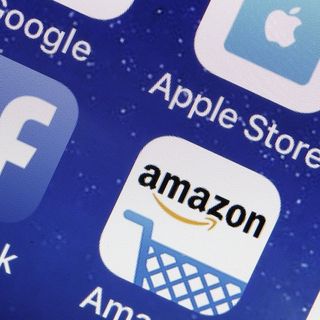It is a shame former US president Trump did not study the constitution he swore an oath to "preserve, protect, and defend" when he assumed office on January 20, 2017.
Sure enough, when under investigation as to whether he was faithful to that oath, he declared he had the right, under Article II, "to do whatever I want as president".
No.
He was impeached twice because of that mistaken belief: in 2019, for corrupting the exercise of his foreign policy powers by pressuring Ukraine to take down a political opponent, Joe Biden, then the Democratic frontrunner in the presidential race; and in 2021, for seeking the disruption of the final process of Congress certifying the presidential election, which would have undermined the peaceful transfer of power - a hallmark of American democracy - to the new president.
Trump does not have a constitutional free speech right to speak on Facebook or Twitter [...] Congress has not passed a law stopping Trump's free speech. Twitter and Facebook have.
Trump is similarly on the slippery slope of delusion that Twitter and Facebook have denied him his constitutional First Amendment free speech rights - that he cannot be silenced on those platforms, and that they acted illegally when they shut down the social media feeds of the sitting president in the wake of the insurrection he incited against the Capitol on January 6.
Trump has announced he will bring a class action lawsuit - two others currently in the class were thrown off social media because of what they posted about coronavirus and immigrants - to stand up "for American democracy, by standing up for free speech rights of every American ... I will never stop fighting to defend constitutional rights and sacred liberties of the American people."
But Trump does not have a constitutional free speech right to speak on Facebook or Twitter.
The First Amendment states that "Congress shall make no law ... abridging the freedom of speech."
Congress has not passed a law stopping Trump's speech. Twitter and Facebook have. The government has not blocked Trump from speaking on those platforms. Two private companies who own them have. And they can do so under section 230 of the Communications Act, which enables internet providers to act "in good faith to restrict access to or availability of material that the provider or user considers to be ... excessively violent, harassing, or otherwise objectionable, whether or not such material is constitutionally protected". This was the basis for Trump's deplatforming in the wake of the January 6 insurrection - the most violent attack by Americans on the United States since the Civil War.
Trump's lawyers will argue that Congress enacting a law such as section 230, which was able to be used to bar him from a social media platform, violated his First Amendment rights. Real legal scholars disagree. Facebook and Twitter are not agencies of the government, nor are they acting on behalf of the government. The government has not shut Trump down.
Trump himself argued his case last week in The Wall Street Journal.
"Big Tech has been illegally deputized as the censorship arm of the U.S. government. This should alarm you no matter your political persuasion. It is unacceptable, unlawful and un-American ... Perhaps most egregious, in the weeks after the election, Big Tech blocked the social-media accounts of the sitting president. If they can do it to me, they can do it to you - and believe me, they are."
Not quite. Trump's First Amendment speech rights are fully intact. He can say whatever he wants, whenever he wants. None of us, not even a president of the United States, has automatic access to social media platforms, especially ones which believe the content we're going to post violates their standards. Trump simply has to find other outlets, as he did when he established a blog, "From the Desk of Donald J. Trump". Trump speeches and rallies are well covered across all media.
What Trump really wants to do is silence the "cancel culture" against conservatives that he believes is rampant throughout big tech. Last year, when Twitter and Facebook began issuing cautionary notes on Trump's social media posts, he had his Justice Department propose legislation to solve the problem. Attorney-General William Barr indeed advocated limiting platforms' ability to take down content. In finding a remedy that would help Trump in his crusade against Twitter and Facebook, Barr proposed a clause that was intended to curb the use of social media by Antifa and other alleged left-wing extremists. But its proposed language is broader than that. The Justice Department draft legislation aimed left, but hit the right-wing too: it would explicitly authorise social media platforms to silence language "promoting terrorism or violent extremism".
What Trump really wants to do is silence the "cancel culture" against conservatives that he believes is rampant throughout big tech.
Which is exactly what Facebook and Twitter did, because the violent rioters on January 6 were encouraged by Trump to attack, invade and disrupt the Congress of the United States.
Trump and Barr never contemplated that right-wing extremism might be the target of their legislative fix.
Trump lost 60 lawsuits trying to overturn the 2020 presidential election. He will lose this one too.
But not for naught. Trump never wastes an opportunity to monetise his misfortunes, be they at the hands of a special counsel "witch hunt", House of Representatives Democrats, or left-wing Silicon Valley titans. Trump and Republican allies launched fundraising appeals immediately after the media conference, which was covered by all the "fake news" outlets Trump supposedly detests.
He will raise millions from so many who believe he has read the constitution.







